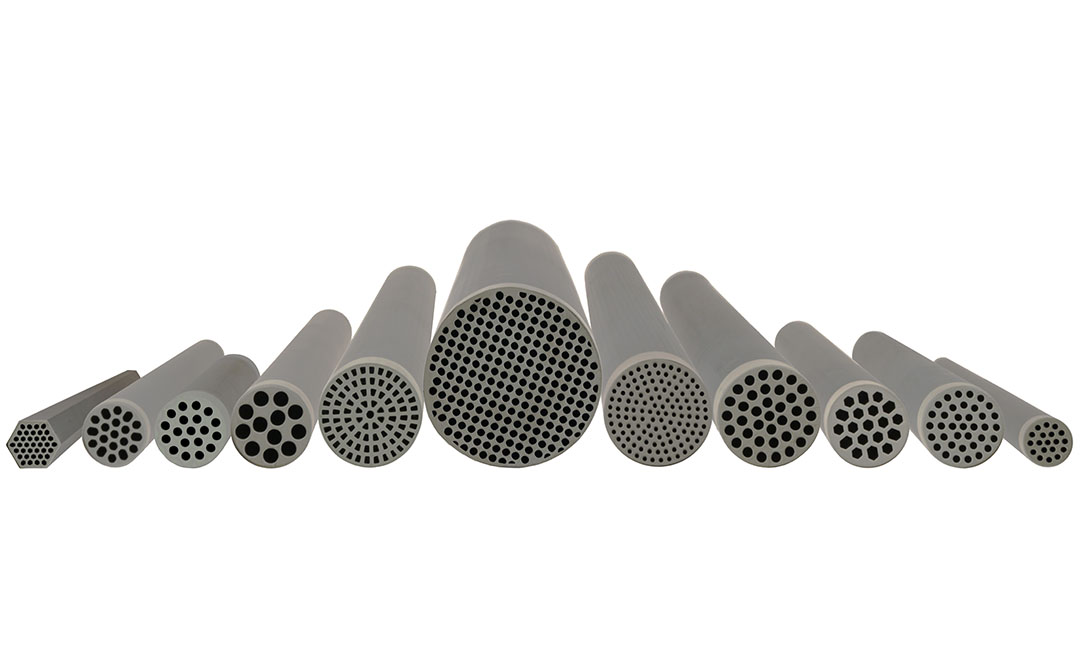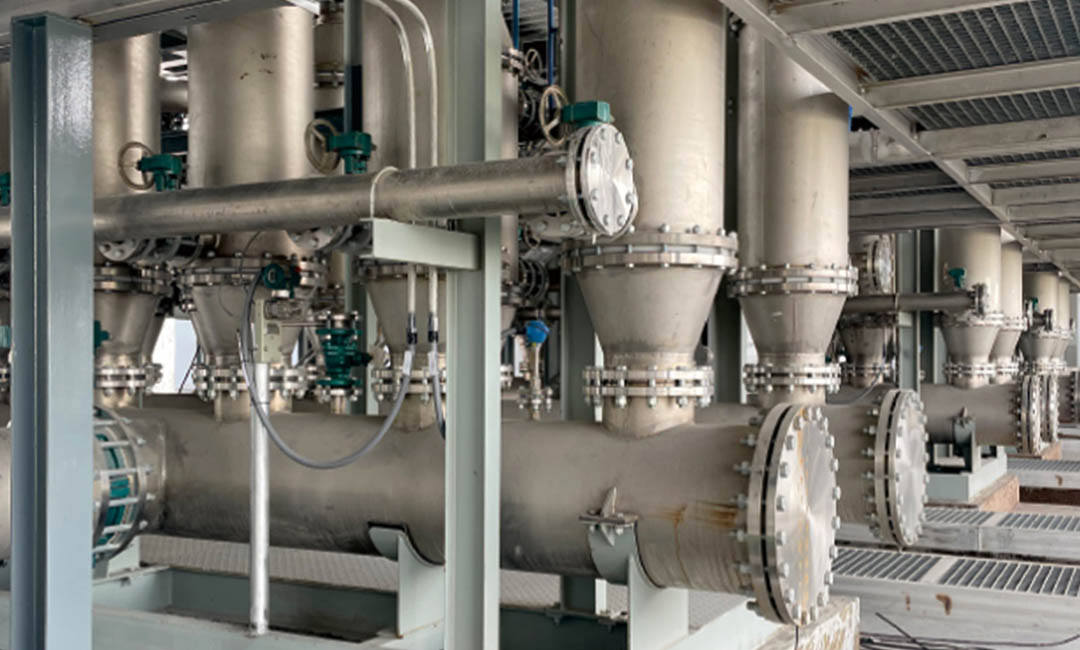Enhanced Filtration Efficiency
Silicon carbide tubular membranes have emerged as a key technology in modern filtration solutions, offering a range of benefits that make them highly effective in a variety of applications. One of the primary advantages of silicon carbide tubular membranes is their enhanced filtration efficiency. These membranes are capable of removing a wide range of contaminants from water and other liquids, making them ideal for use in industries such as wastewater treatment, desalination, and food and beverage production.
One of the key factors that contribute to the enhanced filtration efficiency of silicon carbide tubular membranes is their high porosity. The unique structure of these membranes allows for the efficient removal of particles and impurities, resulting in cleaner and clearer water. This high porosity also helps to reduce fouling and clogging, prolonging the lifespan of the membrane and reducing maintenance costs.
In addition to their high porosity, silicon carbide tubular membranes also offer excellent chemical and thermal stability. This means that they can withstand harsh operating conditions, such as high temperatures and exposure to corrosive chemicals, without losing their filtration efficiency. This makes them highly versatile and suitable for use in a wide range of industrial applications.

Another key benefit of silicon carbide tubular membranes is their durability. These membranes are highly resistant to mechanical stress and abrasion, making them ideal for use in high-pressure filtration systems. Their robust construction ensures that they can withstand the rigors of continuous operation, providing reliable and consistent filtration performance over time.
Furthermore, silicon carbide tubular membranes are easy to clean and maintain, thanks to their smooth surface and non-stick properties. This makes them cost-effective to operate, as they require less frequent cleaning and replacement compared to other types of filtration membranes. Their low fouling tendency also helps to reduce energy consumption, further enhancing their efficiency and sustainability.
Overall, silicon carbide tubular membranes offer a range of benefits that make them an attractive choice for modern filtration solutions. Their enhanced filtration efficiency, high porosity, chemical and thermal stability, durability, and ease of maintenance all contribute to their effectiveness in a variety of industrial applications. Whether used in wastewater treatment plants, desalination facilities, or food and beverage production facilities, silicon carbide tubular membranes provide a reliable and cost-effective solution for achieving clean and clear water.
In conclusion, silicon carbide tubular membranes are a key technology in modern filtration solutions, offering a range of benefits that make them highly effective in a variety of applications. Their enhanced filtration efficiency, high porosity, chemical and thermal stability, durability, and ease of maintenance all contribute to their effectiveness in removing contaminants from water and other liquids. With their proven performance and reliability, silicon carbide tubular membranes are an essential component of any modern filtration system.
Improved Chemical and Thermal Stability
Silicon carbide tubular membranes have emerged as a key technology in modern filtration solutions due to their numerous benefits. One of the key advantages of these membranes is their improved chemical and thermal stability compared to traditional filtration materials. This enhanced stability allows for more efficient and reliable filtration processes in a wide range of industries.
Silicon carbide is known for its exceptional resistance to harsh chemicals and high temperatures, making it an ideal material for filtration applications where traditional materials may degrade or fail. This superior chemical and thermal stability ensures that silicon carbide tubular membranes can withstand the most demanding operating conditions without compromising performance.
In industries such as wastewater treatment, pharmaceuticals, and food and beverage production, where exposure to corrosive chemicals and high temperatures is common, the use of silicon carbide tubular membranes can provide significant advantages. These membranes can effectively filter out contaminants and impurities while maintaining their structural integrity and performance over time.
Furthermore, the improved chemical and thermal stability of silicon carbide tubular membranes results in longer service life and reduced maintenance requirements. This translates to lower operating costs and increased efficiency for filtration systems, ultimately leading to cost savings for businesses.
The ability of silicon carbide tubular membranes to withstand extreme conditions also makes them suitable for a wide range of applications, including desalination, oil and gas processing, and industrial wastewater treatment. In these industries, where filtration is critical for ensuring product quality and regulatory compliance, the use of silicon carbide membranes can provide peace of mind knowing that the filtration system will perform reliably under challenging conditions.
Additionally, the enhanced stability of silicon carbide tubular membranes allows for more flexibility in system design and operation. These membranes can be used in a variety of configurations, such as crossflow or dead-end filtration, to meet specific process requirements and achieve optimal filtration performance.

Overall, the improved chemical and thermal stability of silicon carbide tubular membranes offers numerous benefits for modern filtration solutions. From increased durability and reliability to cost savings and operational efficiency, these membranes provide a versatile and effective solution for a wide range of industries.
In conclusion, the use of silicon carbide tubular membranes in filtration applications offers a host of advantages, with improved chemical and thermal stability being a key benefit. By choosing silicon carbide membranes, businesses can enhance their filtration processes, reduce maintenance costs, and ensure consistent performance in even the most challenging operating conditions. With their superior resistance to harsh chemicals and high temperatures, silicon carbide tubular membranes are a valuable technology for modern filtration solutions.
Longevity and Cost-Effectiveness
Silicon carbide tubular membranes have become increasingly popular in modern filtration solutions due to their numerous benefits. One of the key advantages of these membranes is their longevity and cost-effectiveness.
Silicon carbide is a highly durable material that can withstand harsh operating conditions, making it ideal for long-term use in filtration systems. Unlike traditional membranes made of polymers or ceramics, silicon carbide membranes have a longer lifespan and require less frequent replacement. This not only reduces maintenance costs but also minimizes downtime, leading to increased efficiency and productivity.
In addition to their longevity, silicon carbide tubular membranes offer cost-effective filtration solutions. While the initial investment may be higher compared to other membrane materials, the long-term savings outweigh the upfront costs. The durability of silicon carbide membranes means that they require less frequent replacement, reducing overall operating expenses in the long run.
Furthermore, the superior performance of silicon carbide membranes results in higher filtration efficiency, leading to lower energy consumption. This not only reduces operational costs but also contributes to a more sustainable and environmentally friendly filtration process. By using silicon carbide tubular membranes, industries can achieve cost savings while minimizing their carbon footprint.
Another key benefit of silicon carbide membranes is their resistance to fouling and chemical degradation. Traditional membranes are prone to fouling, which can decrease filtration efficiency and increase maintenance costs. Silicon carbide membranes, on the other hand, are highly resistant to fouling and can be easily cleaned, ensuring consistent performance over time.
Moreover, silicon carbide membranes are chemically inert, making them suitable for a wide range of applications across various industries. Whether filtering water, wastewater, or industrial process streams, silicon carbide tubular membranes provide reliable and efficient filtration solutions. Their versatility and durability make them a cost-effective choice for companies looking to improve their filtration processes.
In conclusion, silicon carbide tubular membranes offer numerous benefits for modern filtration solutions, particularly in terms of longevity and cost-effectiveness. Their durability, resistance to fouling, and chemical inertness make them an ideal choice for industries seeking reliable and efficient filtration systems. By investing in silicon carbide membranes, companies can achieve long-term cost savings, improved operational efficiency, and reduced environmental impact. With their superior performance and durability, silicon carbide tubular membranes are a key component of modern filtration solutions.

